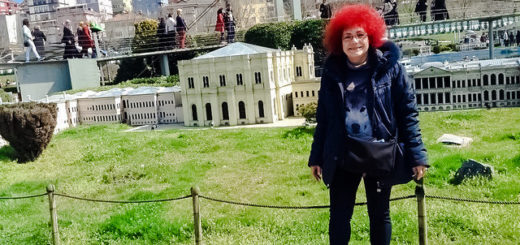‘The Four Agreements’ by Don Miguel Ruiz – Part 2 Learning A Simple Code Of Life From Toltec Wisdom
You will remember from a previous post that, according to Toltec tradition, we may regard Don Miguel Ruiz as a guide toward personal freedom. I have talked about the first two agreements from his influential book ‘The Four Agreements’ here. The principles are, ‘ being impeccable with our words’ and ‘not taking things personally’. This week I will talk about the remaining two codes of life for attaining personal freedom from a contemporary perspective.
The War Without and Within
We go through times of bombs. They keep exploding to kill innocent people. Often we feel helpless. What about our internal battlefields? The bombs we drop in our minds create the ‘hell like ambiance’ in our dream reality. Achieving internal peace is how we can actively contribute to the restitution of peace around us.
Even though we tend to push to the background of our conscious awareness we all know that we will die at an undetermined time in the future. When we die we will be leaving everything in this realm; status, money, beauty, all belongings. Many ascetics live their lives with full awareness of this reality.
I know of a one Western artist who showed the world how far he can take this awareness. Michael Landy destroyed all his belongings leaving himself without anything. When you can let go of everything without dying you gain everything that matters. It is rather like being reborn.
I have experienced a similar feeling of rebirth more than a decade ago now, when I lost control of our car while traveling with my family in a rainy day on the mountain road from Turunç to Marmaris.
The car came several times to the edge of the cliff and finally stopped safely at the mountain side of the road. We were unscratched physically, shaken emotionally. It was the right combination for a rebirth experience. Since then whenever I lose sight of the big picture, I remind myself this feeling which brings me to a state of knowing what is really important and of calmness.
In order to achieve autonomy and personal freedom we need to start with awareness of thousands of agreements we make with ourselves. These are based on the domestication process or conditioning that determines our identity. We are conditioned to receive praise and love in response to certain actions. Through this process we allow our personal power and energy to dissipate and we feel powerless.
This assumption that our value is dependent on what others think of us creates internal conflict. We start to forget what we really need or want at the expense of pleasing others.
Like in all conflicts our oppositional parts need to be heard and accepted with grace for these parts to be in peace; to evolve into intimacy of personal and mutual understanding.
Here are the last two principles to help you create a better reality for yourself.
The Third Agreement: Don’t Make Assumptions
This simple agreement has the power to make significant changes in our lives. Making assumptions is part of human existence. In this way we create an illusion of certainty. The problem occurs when we believe our assumptions are true and defend them at all costs to be right.
A young man I know assumes that his friends should know what he wants without him having to say it to them. When they don’t he gets cross and he excludes himself. The other assumption he developed as a result was that his friends did not care about him.
The antidote to this is to verbalize about what you want. Let go of guilt and of the worries of being called selfish or not being liked. Find the courage to ask questions and to express what you really want. Communicate with others as clearly as you can. This is the only way to nurture mutual understanding, avoiding sadness and drama.
We’d rather accept a negative outcome than deal with uncertainty. This is when our assumption habit takes over. We use our imagination instead of rationality. And the end result is often not in our favor as we are naturally driven by fear.
Another antidote is asking people around you for clarification. For example the young man can ask his friends why they seemed to ignore him when he was upset.
The hard part is recognizing your assumptions. They often come up as automatic thoughts. In order to catch them during the day you need to check your thoughts. It is hard at first but worth the effort. The last agreement will help with this effort part.
The Fourth Agreement: Always Do Your Best
This last agreement gives us a tool to approach the all tasks in life as well as on how to act on the previous agreements.
This is about always doing the best you can at any moment. This goes with accepting that your best will change from one day to another. Often the concept gets mixed up with producing perfect results. Notice that this is the effort that is best.
I would like to offer a word of caution here: The best we can do need to be within our limits. Overdoing would damage our health.
When we use this principle we stop self blaming chatter that goes on about being inadequate; therefore we stop the associated suffering.
Hopefully doing your best would protect you from other people’s negative talk about you. There is no need to blame somebody if you know that they did all that they could. However we would still need to be honest with ourselves and continue to learn from our mistakes to remove regret and self-criticism.
Habituation of Four Agreements
All habits take time to settle. First three weeks you need to make conscious effort to apply the agreements. It is best to be aware that this is a process and that you are unlikely to wake up one day and never ever think in terms of your old patterns.
Failure is how success looks at its first stages. Starting again and continuing are the interim stages. Here is an example of how you can apply the four agreements to the process of habituation.
- I am being impeccable with my word – I deeply love and accept myself unconditionally.
- I am not taking personally – When I fall back to my old patterns I know it is not due to my personal inadequacies, this is part of the natural progression.
- I am not assuming – I don’t assume adopting the four agreements will be without internal conflict.
- I am doing my best – I persist in giving my ‘imperfect and changing best’ to make a habit of the agreements.





